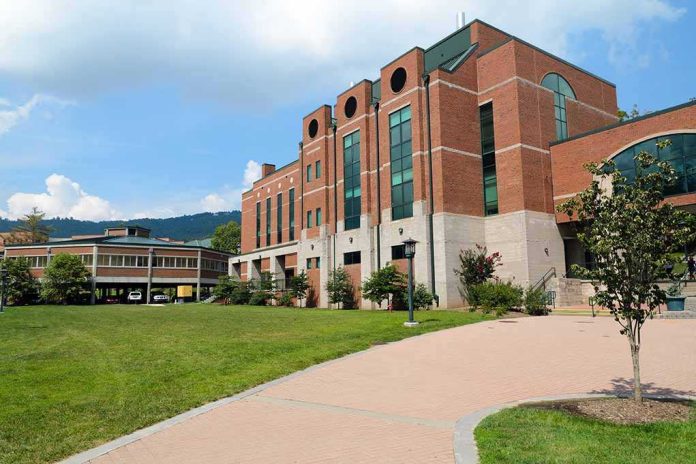
When the United States finally caught a Chinese national with ties to Beijing’s military quietly embedded in a top university’s aerospace program, the outcome was what every law-abiding American should expect—and yet, the underlying problem is far from solved.
At a Glance
- Chinese student Jiaxuemo Zhang, with links to a major PLA-affiliated university, was arrested and sentenced for visa fraud after concealing his background.
- Zhang’s conviction led directly to ICE taking custody, opening the door to his deportation and permanent ban from the U.S.
- The incident highlights ongoing concerns about espionage, technology theft, and the failure of current vetting procedures in American academia.
- Chinese officials are crying foul, but U.S. national security experts see the case as the tip of the iceberg.
Visa Fraud with National Security Consequences
Jiaxuemo Zhang, a Chinese national who entered the U.S. in 2021 to study aerospace engineering at SUNY Buffalo, managed to slip past authorities by omitting his prior research at Beihang University—a school the Pentagon itself recognizes as a pipeline for the Chinese military. Beihang is no “ordinary” academic institution; it’s a crown jewel of Chinese military research, one of Beijing’s infamous “Seven Sons of National Defense.” Yet somehow, our supposedly rigorous vetting process failed to detect Zhang’s omission until two years after he arrived, even as he entered a field—U.S. aerospace technology—that’s a prime target for foreign espionage. The oversight raises serious questions about the priorities of those running our border and visa systems.
Investigators eventually discovered the omission, and in August 2023 Zhang was arrested in Buffalo and charged with visa fraud. The U.S. Attorney’s Office for Western New York did what every American expects—prosecuted and secured a guilty plea. Zhang admitted to concealing material facts on his visa application, a criminal act with profound national security implications. He was sentenced to time served and handed directly to ICE, which is expected to initiate removal proceedings. The outcome is clear: Zhang will likely never set foot on American soil again, at least not legally. The real question is, how did he get here in the first place?
Chinese Officials Lash Out, U.S. Security Experts Stand Firm
The Chinese Foreign Ministry wasted no time denouncing the prosecution as “fabricated” and “politically motivated.” They claim the U.S. is suppressing Chinese students under the pretext of national security. This is the same tired talking point Beijing rolls out every time one of their operatives gets caught red-handed. Meanwhile, U.S. law enforcement and security experts point to the straightforward facts: Zhang lied about his links to a university known for military research, in a sensitive American research program, at a moment when the U.S. is desperately trying to protect its technological edge.
Academic leaders, predictably, warn about the “chilling effect” on international cooperation. But let’s be honest: when a student from a foreign adversary with a documented history of stealing American innovation hides his military-linked background, it’s not about academic freedom. It’s about national security—and common sense. This case is not an isolated incident, either. Similar arrests and deportations have occurred across the country, as U.S. authorities scramble to plug the many leaks in our academic and research institutions, often after the damage is already done.
Broken Vetting, Academic Naivety, and the Cost to America
Cases like Zhang’s expose the gaping holes in America’s approach to both border security and academic oversight. Despite years of warnings, universities still welcome students from hostile regimes into programs involving sensitive technologies, with little more than a rubber stamp. The result? Our tax dollars fund research that can end up in the hands of the same adversaries who see America’s freedom and prosperity as threats to their own authoritarian ambitions. Meanwhile, families struggling with inflation and a government that prints money like confetti are forced to watch as yet another case of “student visa fraud” unfolds.
Universities and government bureaucrats alike seem more worried about appearing “inclusive” than about protecting American interests. Every time a case like this is unearthed, we get empty promises of “stricter vetting” and “improved compliance.” But the fact remains: it took two years and a federal prosecution to catch one student with obvious red flags. How many others are quietly gathering knowledge for our adversaries right now, knowing that America’s doors are still wide open to anyone who’s good at filling out paperwork and hiding their true intentions?



